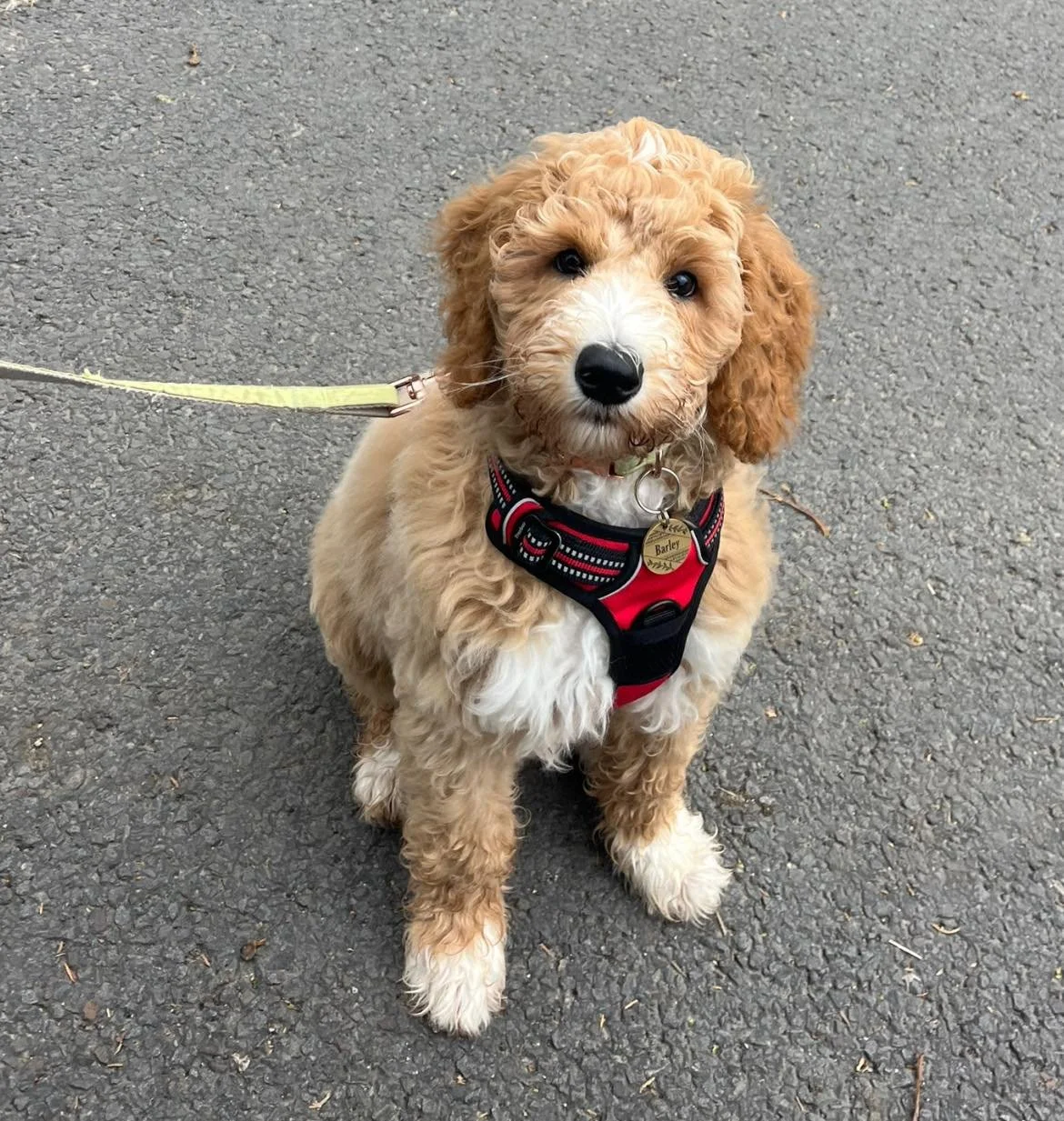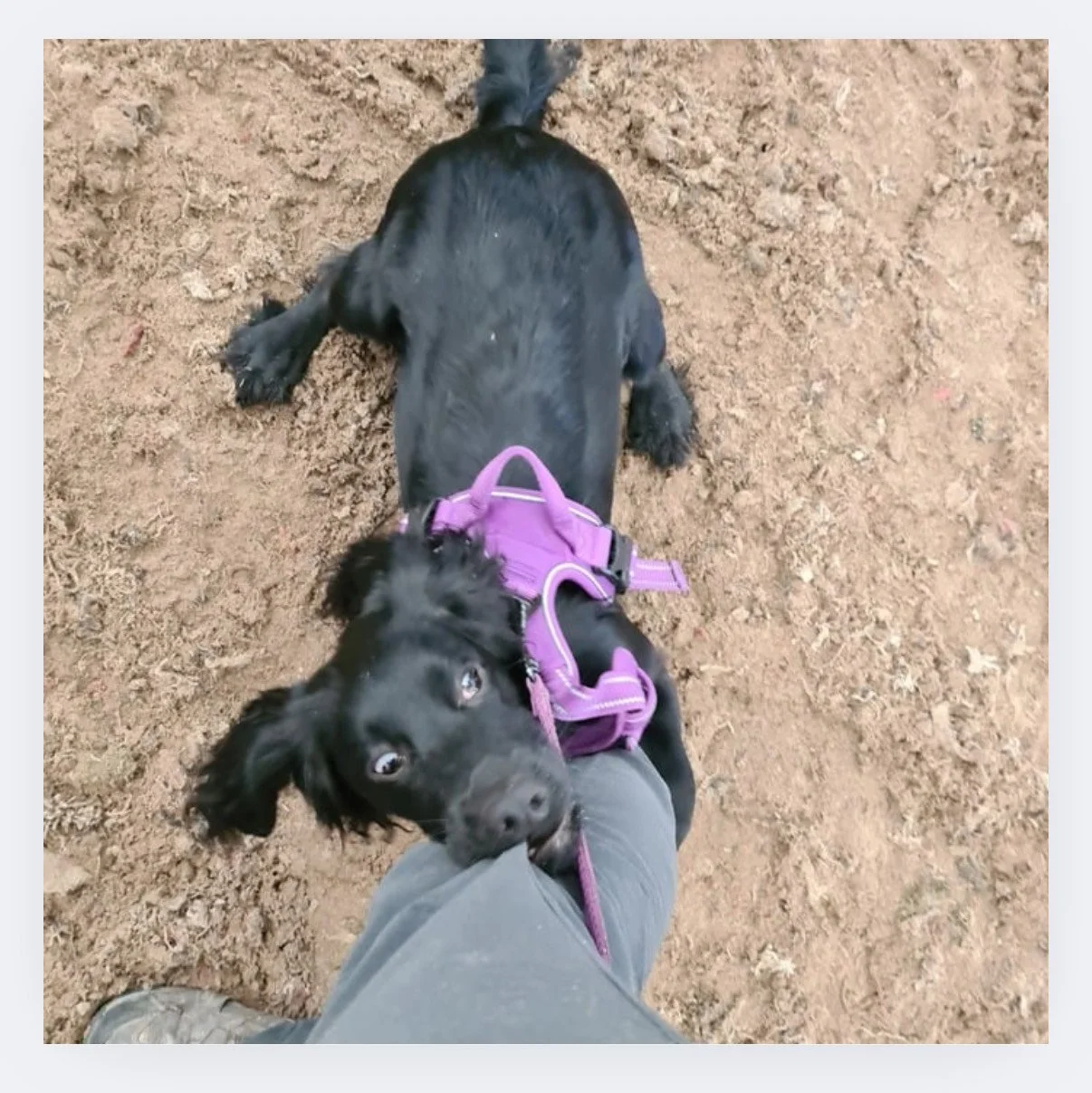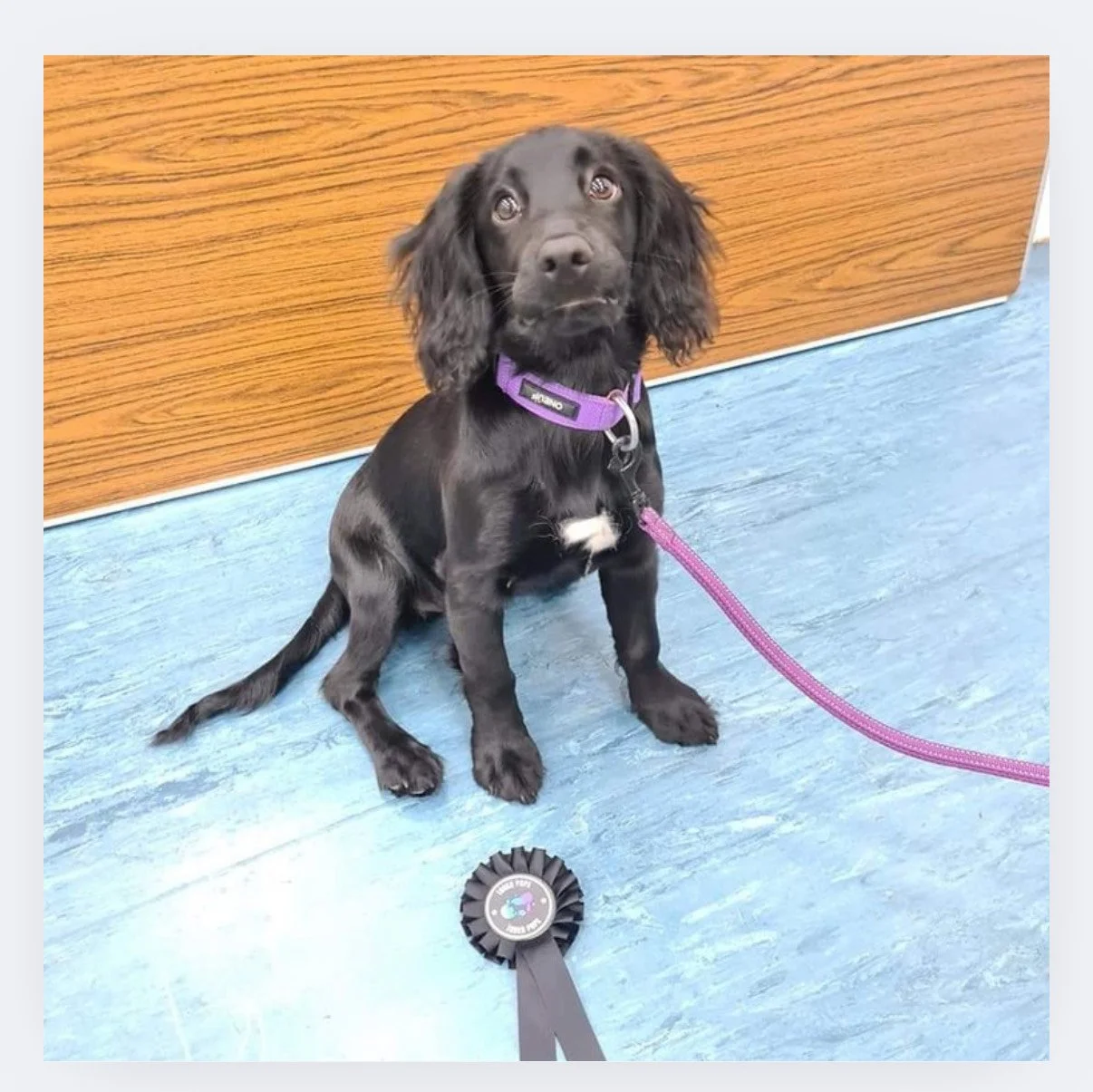Why Structured Puppy Classes Are the Best Start for Your Dog
Bringing a puppy home is such an exciting time – but let’s be honest, it can feel a bit overwhelming too! Toilet training, chewing, biting, socialisation – there’s a lot to think about. Add in the minefield of advice online (and from well-meaning friends and family), and it can be hard to know what’s actually best for your puppy.
One of the most common questions I get asked is: “What’s the best way to socialise my puppy?”
You might see adverts for puppy playgroups or meet-ups where lots of puppies are put together to “learn to socialise.” While it sounds like a great idea, the truth is unstructured puppy free-for-alls can actually create more problems than they solve.
Barley, enjoying his 1-2-1 puppy session.
Why Structured Classes Work Better
In my small group puppy classes, everything is carefully planned. Puppies are given safe opportunities to see and meet other dogs, but at a pace that suits them as individuals. Some might need to hang back and watch first, others are ready to dive in. The important bit? I’m watching body language, making sure interactions are positive, and stepping in before anyone gets overwhelmed.
In contrast, in unstructured puppy play sessions:
The shy pups often get bowled over, which can create long-lasting fear of other dogs.
The boisterous pups rehearse rough, over-the-top play and learn bad habits.
Owners don’t usually get much chance to teach their puppies how to stay calm and listen around other dogs.
So instead of helping puppies “socialise,” free-for-alls can either scare them or teach them to ignore you!
Socialisation: It’s Not Just About Other Dogs
Woody the Springer Spaniel puppy graduating puppy classes.
When I talk about socialisation in class, I don’t just mean “meet as many dogs and people as possible.” Real socialisation is about giving your puppy positive experiences with the world they’re going to live in.
That includes:
Meeting a variety of people (different ages, sizes, people in hats, with walking sticks, carrying umbrellas, etc.)
Getting used to everyday handling – things like touching paws, ears, and mouth, which makes vet visits and grooming much easier later on
Being introduced gently to equipment like brushes, harnesses, leads and nail clippers
Experiencing different environments and noises – traffic, vacuum cleaners, fireworks recordings, busy streets
The goal isn’t to overwhelm your puppy with everything at once, but to build their confidence gradually. That way, as they grow up, they’re far less likely to develop fears or sensitivities.
Prevention Is Always Easier Than Cure
So many behaviour problems I see in older dogs – things like reactivity, fear of strangers, handling issues – could have been prevented with the right foundations in puppyhood. It’s so much easier to set puppies up for success now than to try and fix problems later on.
Think of puppy training as an investment. You’re not just training your 10-week-old pup; you’re shaping the dog they’ll be at one year old, two years old, and beyond.
Mollie the Spaniel puppy playing with her teeth! a common complaint with young puppies
Avoiding the Noise
The internet is full of conflicting advice – and it’s easy to get lost down rabbit holes or straight up confused!
Having the support of a qualified, experienced trainer means you’ve got someone in your corner who can guide you through the tricky bits, give you clear answers, and help with your puppy’s individual needs.
Every puppy is different, and that’s why small, structured classes with professional support are such a game-changer.
✅ In short, a good puppy class should give you and your pup:
Low risk, positive introductions with other dogs and people
Socialisation that goes way beyond just “puppy play”
Confidence for your pup and reassurance for you
Skills and strategies that will last a lifetime
Your puppy only gets one chance at early socialisation – make it a positive one!
Mollie the working cocker spaniel graduating puppy class.




